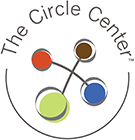Tomorrow is Administrative Professionals Day- are you prepared? Honoring the people who make our organizations really work and succeed is a critical leadership activity. Regardless of age or demographic, people want to know that their leaders see their work and appreciate it. That being said, understand that HOW you recognize and appreciate that work requires a bit more savvy. It is your job as a leader to understand your people and honor their contributions in a way that is meaningful to them. In a Forbes article writer and contributor Meghan M. Biro opines that, “A one-size-fits-all reward and recognition programs will fail no matter who you are dealing with. When you understand what motivates (or sets off) certain generational groups or individuals, you can tailor your response, build more effective teams, and adjust recognition and reward programs.” So, what will you do to connect with some of your most valuable employees in a meaningful way tomorrow and in the future? http://www.forbes.com/sites/meghanbiro/2014/03/23/recognize-reward-and-engage-your-multi-generational-workforce/
Honoring Administrative Professionals- Tomorrow and Every Day!








